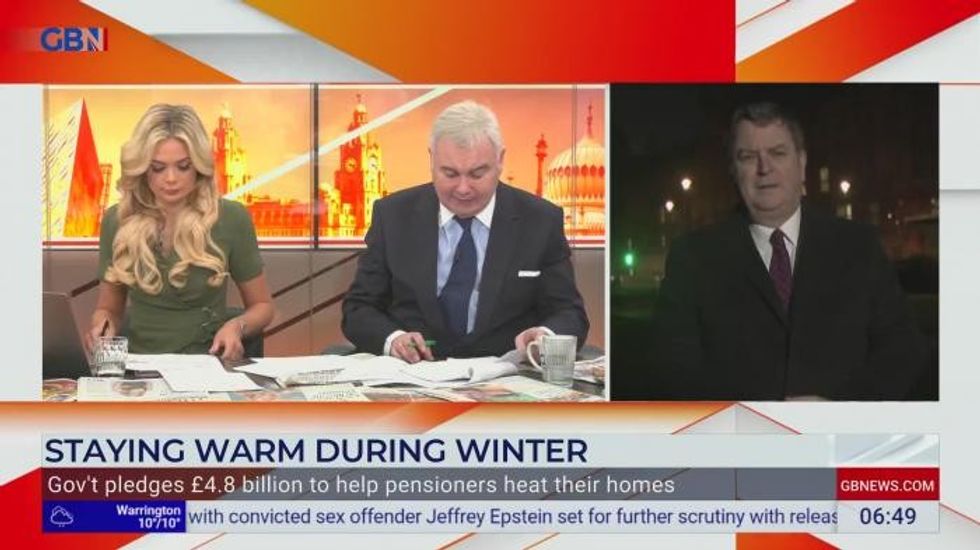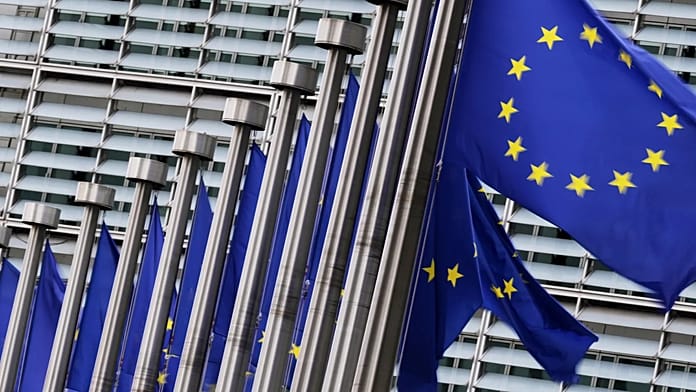State pension triple lock in question as payment increases declared ‘unsustainable’
The future of the state pension triple lock has been put into question as payment increases have been deemed “unsustainable”.A new report by the Institute of Fiscal Studies (IFS) has proposed replacing the triple lock with a “four-point pension guarantee”.This recommendation comes amid anxieties over what the average retirement for a Briton will look like in light of the state pension’s cost on the taxpayer.Under the triple lock, the benefit’s payment rate rises by either the rate of inflation, average earnings or 2.5 percent; whichever is highest.Last year, the state pension rose by 10.1 percent and is expected to increase by another 8.5 percent in April next year.If the IFS “four-point pension guarantee” was implemented, this would mean that:Any long-term increases in the state pension will keep pace with growth in average earnings once the payment has reached its target level The state pension will continue to increase at least in line with inflation The state pension will never be means-tested The state pension will only rise if longevity at older ages increases.Gary Smith, a partner in Financial Planning and retirement specialist at leading UK wealth manager Evelyn Partners, called for “fresh thinking” when it comes to tackling issues relating to the triple lock.The retirement expert praised the report for emphasising the need for reform but was unsure whether the guarantee will be successful.He explained: “It identifies some of the increases to the state pension under the triple lock as having been overly generous and fiscally unsustainable, and that is certainly arguable.“But it’s not clear, for instance, how its suggested ‘double lock’ of ‘earnings indexation with inflation protection’ would have moderated the 10.1 percent increase determined by the triple lock for this financial year, and the 8.5 percent increase due in April – as the former rested on inflation and the latter on earnings.”However, Mr Smith noted that the the IFS does stress that it would use ‘median full-time earnings’ in its new model.LATEST DEVELOPMENTS:2.7 million Britons missing out on getting council tax reduced or for freeJanuary 2024 pay dates for benefits, pensions and cost of living payments: When will you get paid?Millions 'skipping meals' as food inflation hits 9.2 percentThe retirement specialist called for rethinking over how payment rates are calculated by the Government in the long-term.Ms Smith added: “But for the moment, if there is a problem with the levels of SP increase in some years – whether in terms of perceived fairness or affordability to the public purse - it is more with how the inflation and the average earnings elements of the triple lock are measured. “Using the September rate of CPI inflation and average earnings growth that includes bonuses, seem both to be slightly arbitrary and likely to produce unpredictably high or low one-off outcomes.”

The future of the state pension triple lock has been put into question as payment increases have been deemed “unsustainable”.
A new report by the Institute of Fiscal Studies (IFS) has proposed replacing the triple lock with a “four-point pension guarantee”.
This recommendation comes amid anxieties over what the average retirement for a Briton will look like in light of the state pension’s cost on the taxpayer.
Under the triple lock, the benefit’s payment rate rises by either the rate of inflation, average earnings or 2.5 percent; whichever is highest.

Last year, the state pension rose by 10.1 percent and is expected to increase by another 8.5 percent in April next year.
If the IFS “four-point pension guarantee” was implemented, this would mean that:
- Any long-term increases in the state pension will keep pace with growth in average earnings once the payment has reached its target level
- The state pension will continue to increase at least in line with inflation
- The state pension will never be means-tested
- The state pension will only rise if longevity at older ages increases.
Gary Smith, a partner in Financial Planning and retirement specialist at leading UK wealth manager Evelyn Partners, called for “fresh thinking” when it comes to tackling issues relating to the triple lock.
The retirement expert praised the report for emphasising the need for reform but was unsure whether the guarantee will be successful.
He explained: “It identifies some of the increases to the state pension under the triple lock as having been overly generous and fiscally unsustainable, and that is certainly arguable.
“But it’s not clear, for instance, how its suggested ‘double lock’ of ‘earnings indexation with inflation protection’ would have moderated the 10.1 percent increase determined by the triple lock for this financial year, and the 8.5 percent increase due in April – as the former rested on inflation and the latter on earnings.”
However, Mr Smith noted that the the IFS does stress that it would use ‘median full-time earnings’ in its new model.
LATEST DEVELOPMENTS:
- 2.7 million Britons missing out on getting council tax reduced or for free
- January 2024 pay dates for benefits, pensions and cost of living payments: When will you get paid?
- Millions 'skipping meals' as food inflation hits 9.2 percent

The retirement specialist called for rethinking over how payment rates are calculated by the Government in the long-term.
Ms Smith added: “But for the moment, if there is a problem with the levels of SP increase in some years – whether in terms of perceived fairness or affordability to the public purse - it is more with how the inflation and the average earnings elements of the triple lock are measured.
“Using the September rate of CPI inflation and average earnings growth that includes bonuses, seem both to be slightly arbitrary and likely to produce unpredictably high or low one-off outcomes.”







































